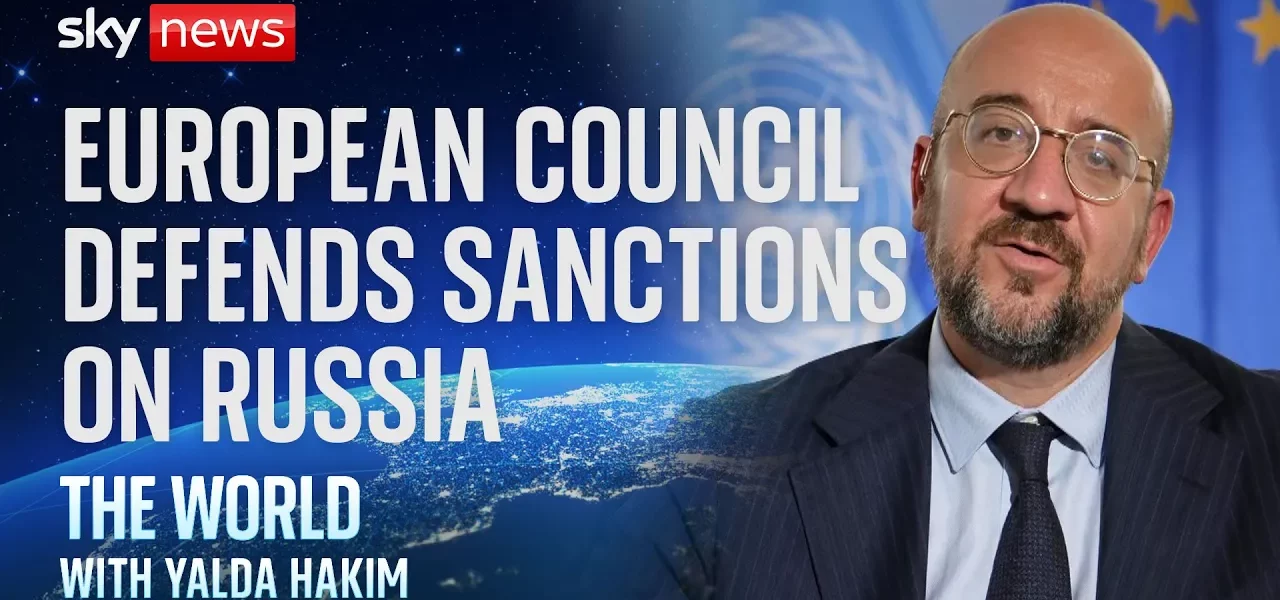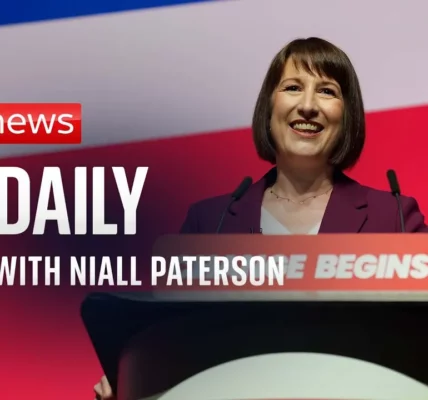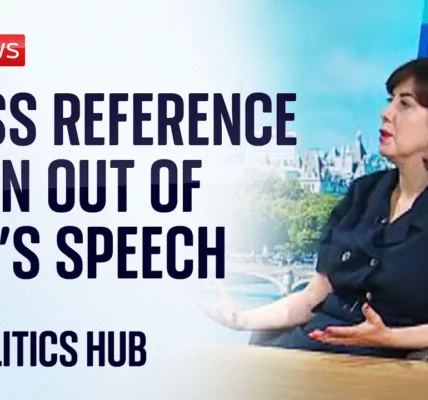Geopolitical Tensions: Sanctions Against Russia and the Middle East Conflict

This article delves into the intricate web of geopolitical tensions surrounding the ongoing conflict in Ukraine, the sanctions imposed on Russia, and the escalating situation in the Middle East, particularly in Lebanon. We examine the implications of these issues on international relations and the global order.
Introduction
In recent months, international attention has been heavily focused on the conflict in Ukraine and the broader implications for global security and stability. The European Union and the United States have initiated a series of sanctions aimed at crippling the Russian economy in response to its aggressive actions. Despite these efforts, reports have emerged indicating that luxury goods and military equipment are still making their way into Russia through third-party countries, raising questions about the effectiveness of these sanctions. Simultaneously, the situation in the Middle East, particularly in Lebanon, has reached a critical juncture, with escalating violence and humanitarian crises. This article seeks to provide a comprehensive overview of these interlinked issues.
Sanctions Against Russia
The sanctions against Russia represent one of the most ambitious frameworks ever established by the European Union. These measures are designed to undermine the financial resources available to the Russian government, thereby limiting its capacity to sustain military operations in Ukraine.
Effectiveness and Challenges of Sanctions
While European officials assert that the sanctions have had an impact, the reality on the ground tells a different story. Reports have surfaced indicating that:
- Luxury cars and heavy machinery are still being exported to Russia.
- Drone technology is being smuggled into conflict zones.
- Third countries are acting as conduits for these prohibited goods.
These developments suggest that the sanctions are being circumvented, which poses a significant challenge to their effectiveness. The EU continues to adapt its strategies, aiming to close loopholes and enhance the overall impact of the sanctions.
International Collaboration and Responses
European leaders are engaging with other nations to bolster their sanctions efforts. This includes:
- Regular discussions with non-EU countries on sanction compliance.
- Monitoring trade data to identify irregularities.
- Coordinating responses to violations of international law.
The EU’s commitment to maintaining a united front against violations of international law is crucial as it seeks to reinforce its stance against Russia.
The Situation in Ukraine
The conflict in Ukraine remains a focal point of European and American foreign policy. As the war continues, the support for Ukraine from Western allies has been unwavering.
Military and Financial Support
The EU and its allies have provided substantial military and financial assistance to bolster Ukraine’s defenses. This includes:
- Military equipment to enhance combat readiness.
- Financial aid packages to support the Ukrainian economy.
- Political backing in international forums.
Such support is seen as vital for maintaining Ukraine’s sovereignty and territorial integrity, especially in light of ongoing Russian aggression.
The Path to Peace
While the desire for peace is evident, discussions about potential negotiations with Russia remain complex. The EU insists on upholding Ukraine’s sovereignty, which complicates any potential dialogue with the Kremlin.
Geopolitical Implications for the United States
The geopolitical landscape is further complicated by the upcoming U.S. elections, which could alter the dynamics of support for Ukraine. The potential for a shift in U.S. foreign policy under a new administration raises questions about the long-term commitment to Ukraine and the broader transatlantic alliance.
Impact of U.S. Political Changes
European leaders are closely monitoring the situation, understanding that a change in U.S. leadership could affect:
- The level of military and financial support for Ukraine.
- International cooperation on sanctions against Russia.
- The global perception of the West’s resolve against authoritarian regimes.
Regardless of the political landscape, European officials maintain that they will respect the choices made by American voters while advocating for a strong and united front against aggression.
Escalating Tensions in the Middle East
As the situation in Ukraine unfolds, the Middle East has also become a flashpoint of conflict, particularly in Lebanon, where violence has surged, resulting in substantial civilian casualties.
The Humanitarian Crisis in Lebanon
The recent escalation in Lebanon has raised alarms within the international community, with reports indicating a rising death toll and significant humanitarian needs. Key points include:
- Over 550 casualties reported, including women and children.
- Calls for urgent humanitarian access and ceasefire measures.
- The need for international intervention to de-escalate the situation.
The EU’s response involves coordinating with regional partners to address the humanitarian crisis and promote stability in the region.
International Law and Support for Israel
European leaders have reiterated their support for Israel’s right to defend itself while urging the government to adhere to international law and the principle of proportionality in its military actions. This dual approach seeks to balance the need for security with humanitarian considerations.
Conclusion
The geopolitical tensions surrounding the conflicts in Ukraine and the Middle East highlight the complexities of international relations in a rapidly changing world. The sanctions against Russia, while ambitious, face significant challenges in enforcement and compliance. Meanwhile, the situation in Lebanon underscores the urgent need for humanitarian intervention and adherence to international law. As global leaders navigate these intricate issues, the commitment to peace, stability, and respect for sovereignty remains paramount. We encourage readers to stay informed and engaged with these critical global issues, as they will undoubtedly shape our future.
“`




